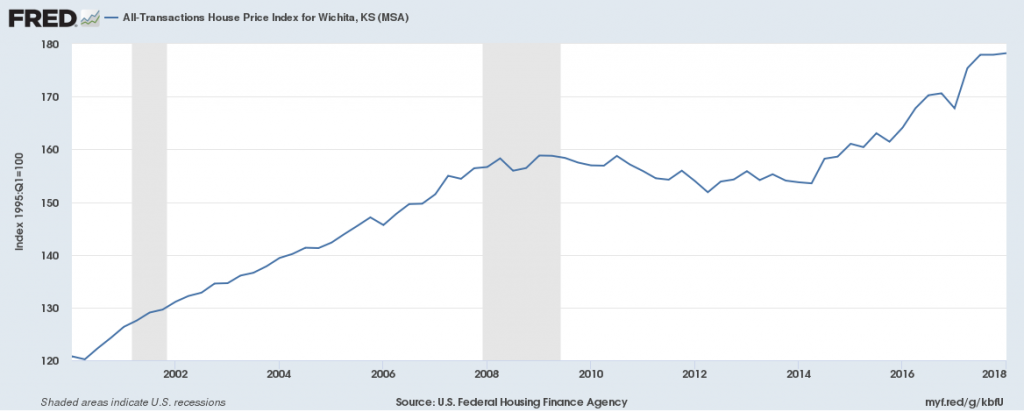Gross Domestic Product
Real GDP (a measure of economic growth) has been increasing since 2009 from the most recent low of $124 billion. It has been growing since then and is at a high of $139 billion in 2017.
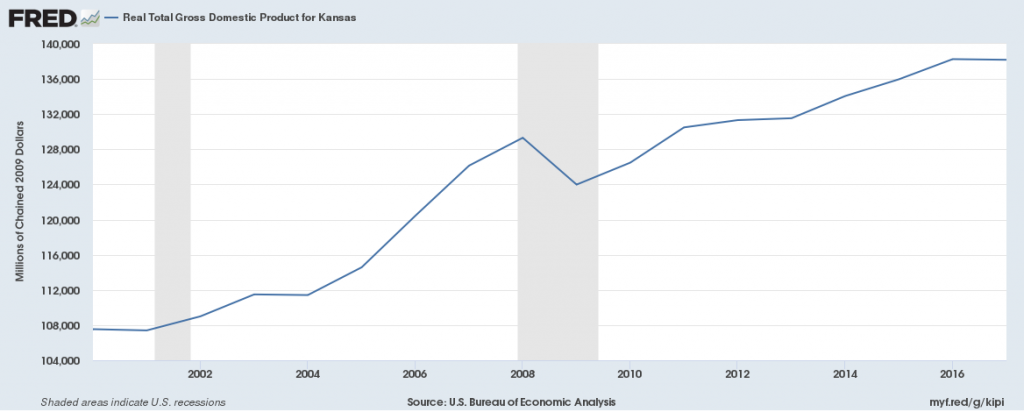
Jobs
Private-sector employers have added 90,000 jobs since 2010, the national low point for private-sector employment. From 2017 to 2018 the private sector has added approximately 30,000 net new jobs for a total of 1,170,000, putting it above the pre-recession high of 1,130,000 total jobs. Average hourly wages in the private sector have been increasing since 2008, going from $20/hr to $23.75/hr in 2018.
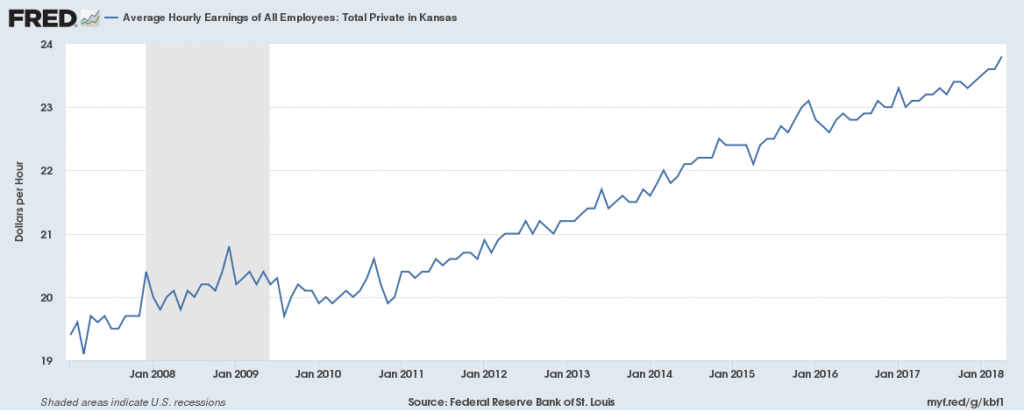
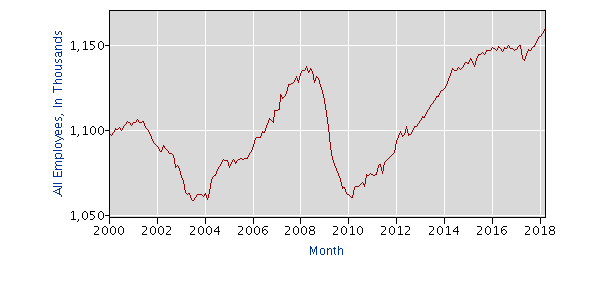
Manufacturing employment has been declining since 2000, especially during the 2008 recession, but has been growing slightly since then. There are 163,000 jobs in this sector in 2018, down from pre-recession levels of 187,000. Average hourly wages of production employees have stagnated since 2010, fluctuating around $19/hr in 2018.
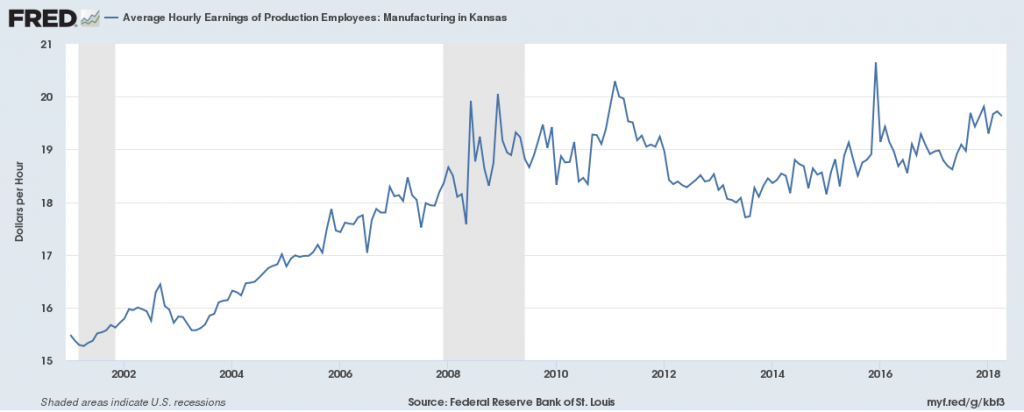
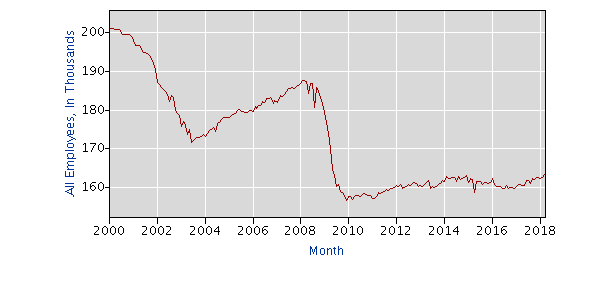
There were 65,000 jobs in the Trade, Transportation and Utilities sector in 2018, 13,000 jobs above its 2010 low, showing significant growth in this sector. The average wage in Trade, Transportation and Utilities occupations has been growing since 2011 from $18/hr to $22/hr in 2018.
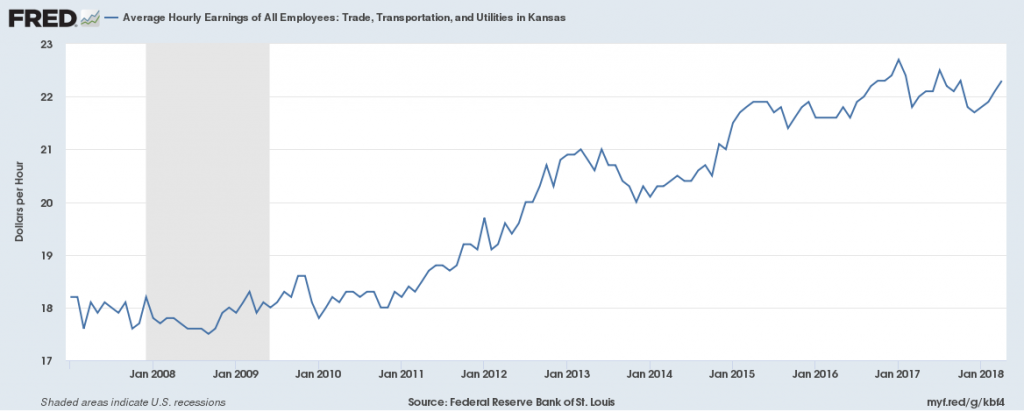
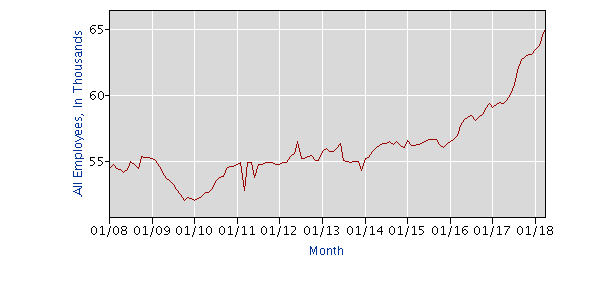
Unemployment
The unemployment rate in 2018 is 3.4%, down from the prior year’s 4% rate. This is below the national average of 3.9% unemployment.
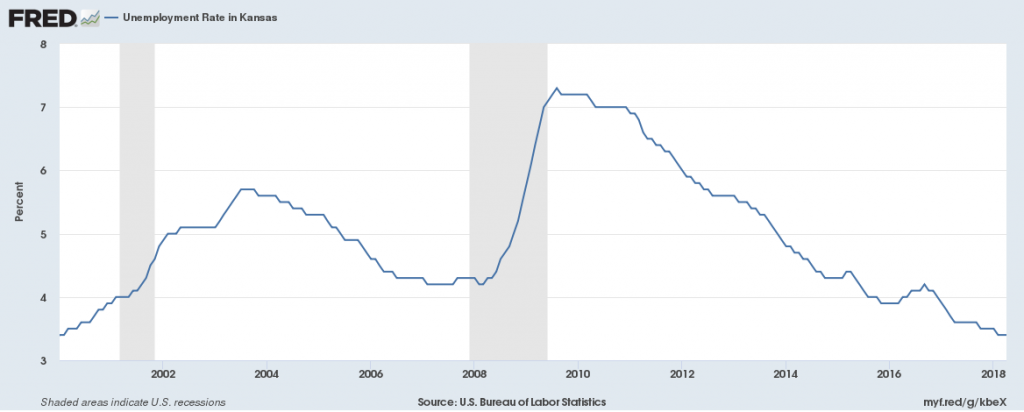
Housing
The House Price Index, a measure of the cost of housing, declined after 2008, going from 240 to 230, but has increased to 282 in 2018 since 2013.
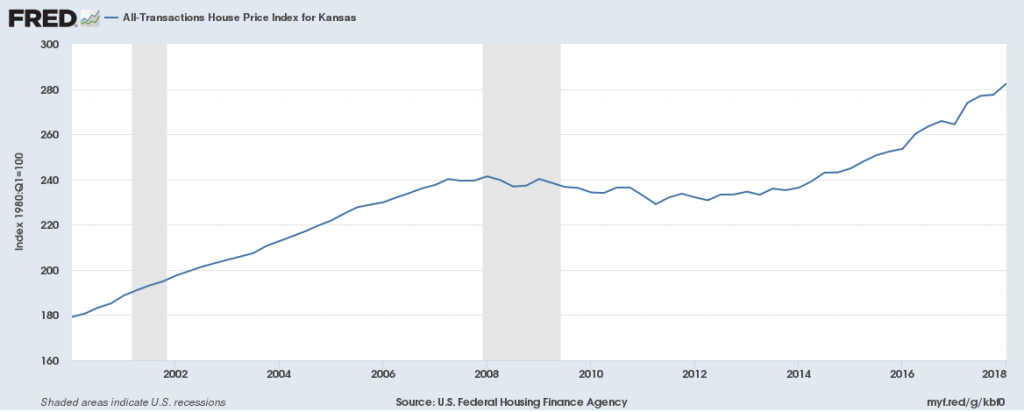
Wichita, KS
Gross Domestic Product
Real GDP (a measure of economic growth) has been increasing since 2009 from the most recent low of $25 billion. It has grown since then and is at the pre-recession levels of $28.75 billion.
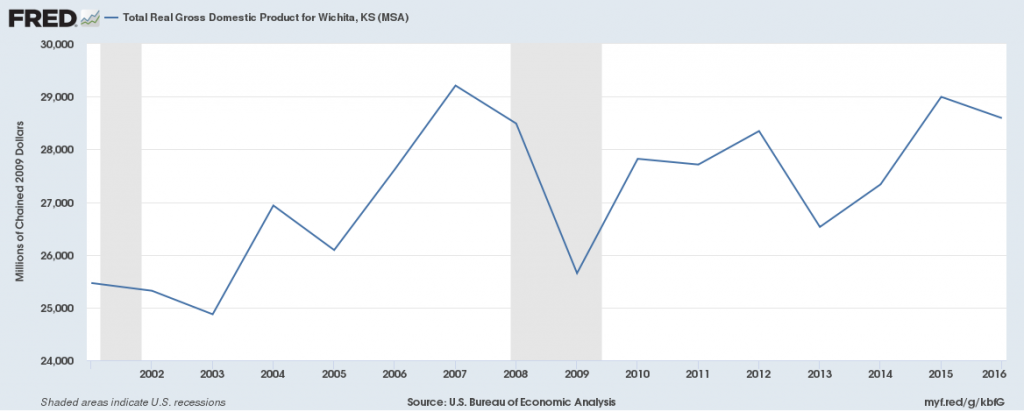
Jobs
Private-sector employers have added 12,000 jobs since 2010, the national low point for private-sector employment. From 2017 to 2018 the private sector has lost approximately 5,000 net new jobs for a total of 253,000, putting it below the pre-recession high of 270,000 total jobs. Average hourly wages in the private sector have been stagnant since 2011, but grew slightly after 2016, going from $21/hr to $21.75/hr in 2018.
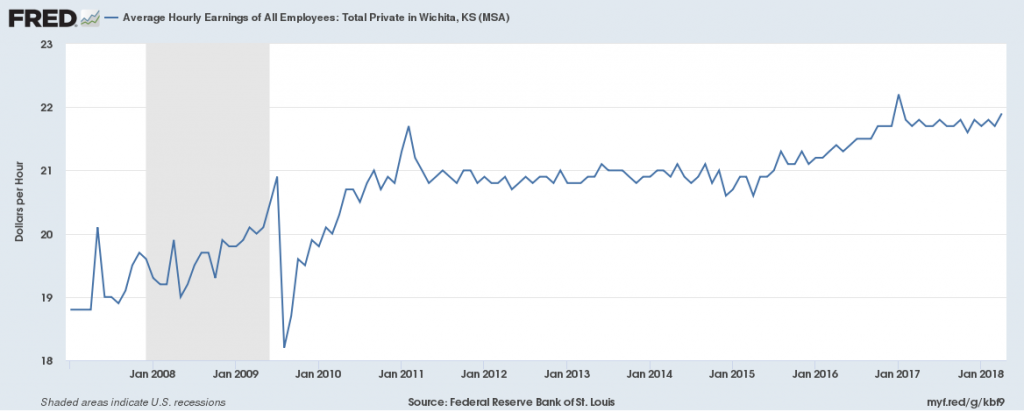
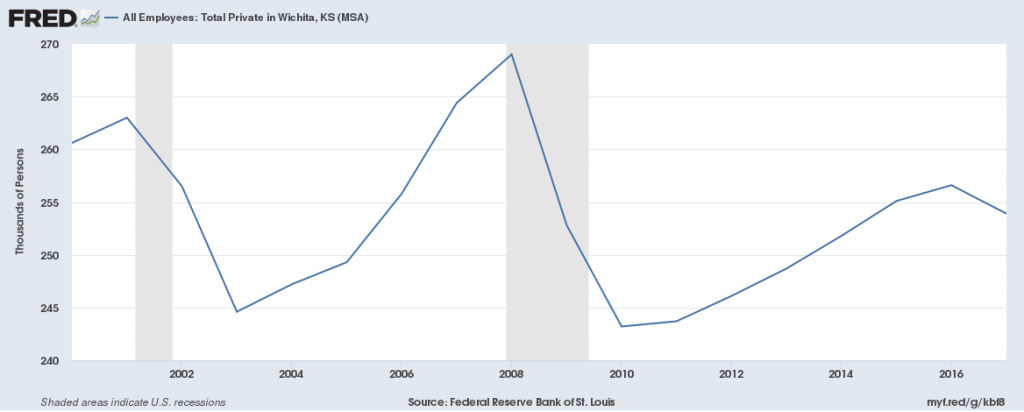
Manufacturing employment has been declining since 2000, especially during the 2008 recession, but has been growing slightly since then. There are 52,000 jobs in this sector in 2018, down from pre-recession levels of 68,000. Average hourly wages of production employees have declined since 2010, going from $18.75/hr to approximately $18/hr in 2018.
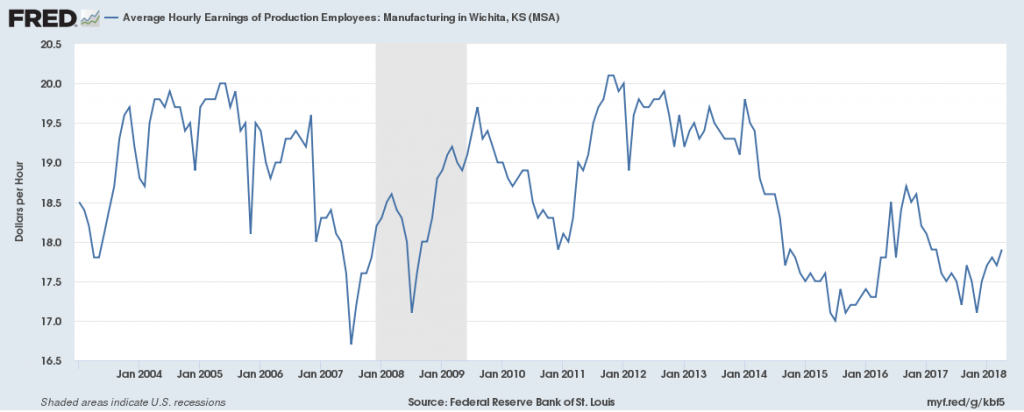
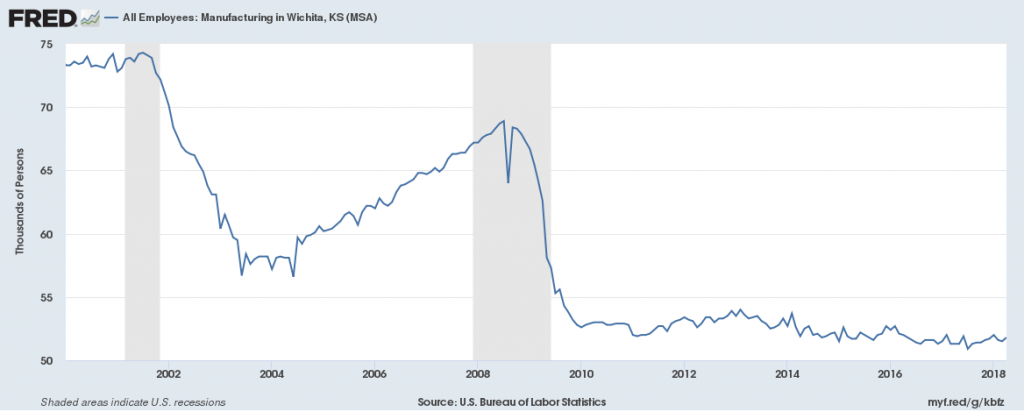
There were 10,000 jobs in the Trade, Transportation and Utilities sector in 2018, 1,500 jobs above its 2010 low, showing mild growth in this sector. The average wage in Transportation and Material Moving occupations was $21.61/hr 2018.
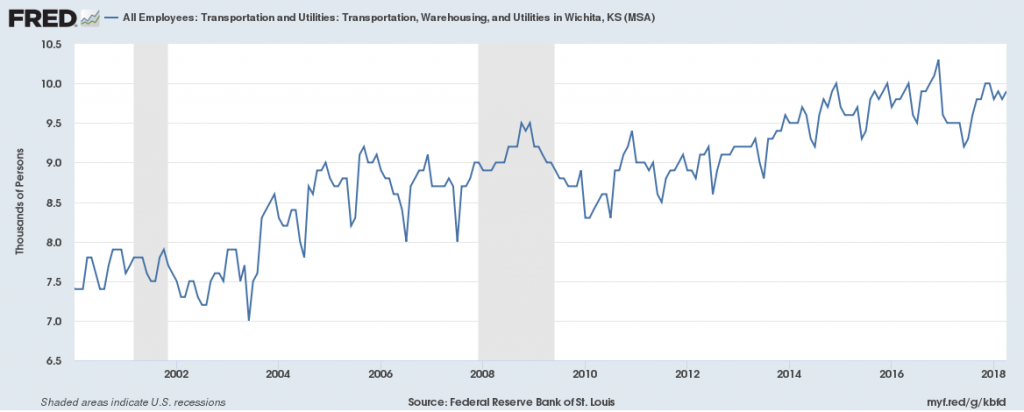
Unemployment
The unemployment rate in 2018 is 3.4%, down from the prior year’s 4% rate. This is below the national average of 3.9% unemployment.
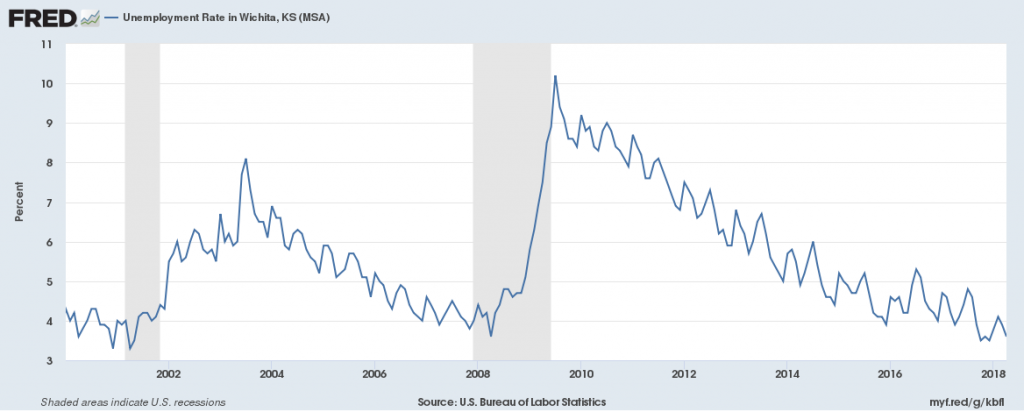
Housing
The House Price Index, a measure of the cost of housing, stagnated after 2008 until 2013 when it grew from 155 in 2013 to 178 in 2018.
